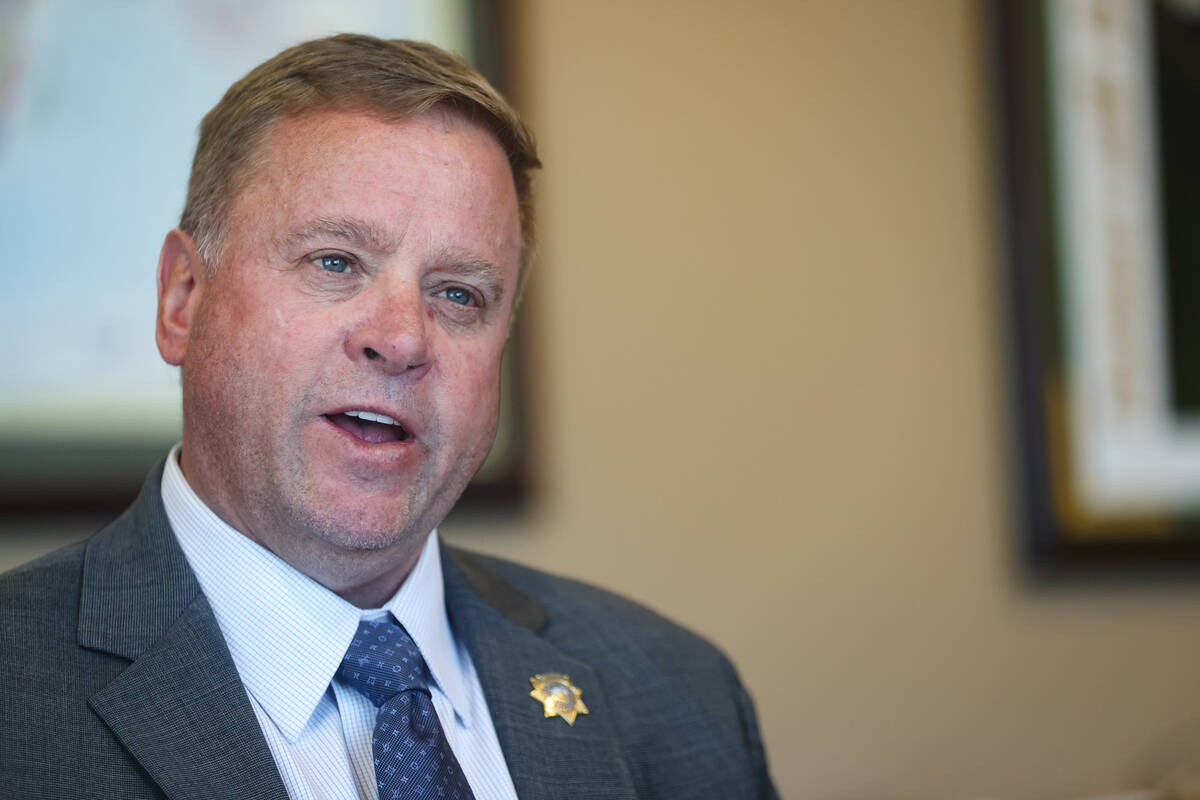‘Bad driving behaviors in Las Vegas’: Sheriff addresses spike in fatal crashes

Reducing carnage on Las Vegas Valley roadways requires a community-wide commitment to safer driving, and the Metropolitan Police Department is doing its part to try to stave off the increase of traffic-related fatalities, according to Sheriff Kevin McMahill.
“We have bad driving behaviors in Las Vegas,” McMahill said in a Wednesday interview with the Las Vegas Review-Journal.
The sheriff added: “I’m not just going to accept the fact that we have these significant increases without mobilizing to do something about it.”
The 61 traffic fatalities in Metro’s jurisdiction as of Wednesday represented a 32 percent spike compared with the same time period in 2023, the sheriff noted.
At least 131 people died in Nevada crashes through April, with 106 deaths reported in Clark County, according to a Nevada Department of Public Safety report, which listed impairment and speeding as the top contributing factors.
“If you lose an individual in your family to a traffic fatality,” McMahill said, “it feels every bit as bad as losing them to a homicide.”
In response to a particularly deadly 2023, when Las Vegas police investigated 158 fatalities, and a significant spike in traffic deaths in January, the police department launched a “Fatal Reduction Plan.”
The patrol operation led to about 13,500 citations, 4,200 of which were for speeding infractions since Feb. 19, he said.
Monthly weekend DUI “blitz” operations targeting problem neighborhoods have resulted in 93 arrests for suspicion of DUI and 336 citations in 2024, the sheriff said.
Furthermore, McMahill said, the department is working to fill vacancies in its traffic safety division and adjusting the patrol shifts to provide a daily presence during the hours of 2 p.m. to 3 a.m., which is when the most DUI-related fatal crashes have occurred over the past five years.
The department is also producing public safety announcements in Spanish, he added.
Traffic officers, who are trained in DUI detection, have been less focused on certain “equipment violations,” McMahill said.
“With limited resources that we have, (we are) more focusing on those violations that are leading to the causal factors of traffic fatalities,” the sheriff said.
McMahill said it was important for motorists to slow down pay attention and give themselves sufficient time to arrive at their destination.
The advice applies to everyone, said McMahill, admitting to recently causing a fender-bender crash on a valley highway.
“I looked behind me, I didn’t see the car coming and caused a minor accident,” he said. “I just didn’t give myself enough time and paying attention to what was happening.”
He added: “So, it can happen to anybody, and it does.”
The sheriff has floated the idea of red light and speed-detection cameras at intersections, which requires a change to state law, which he said he is pursuing.
Opponents have argued that the technology has disproportionately affected minority communities elsewhere, and that it’s only a “moneymaker” for local government. McMahill has heard those arguments, and said that Metro would not target those areas.
The sheriff said he would advocate for the revenue raised from funds to be invested back in the community.
McMahill said the department would lobby state legislators during the upcoming 2025 session.
“And if the answer is, ‘yes,’ there’s a conversation about expanding them,” he said. “If the answer is, ‘no,’ we got to try something else.”
Contact Ricardo Torres-Cortez at rtorres@reviewjournal.com.